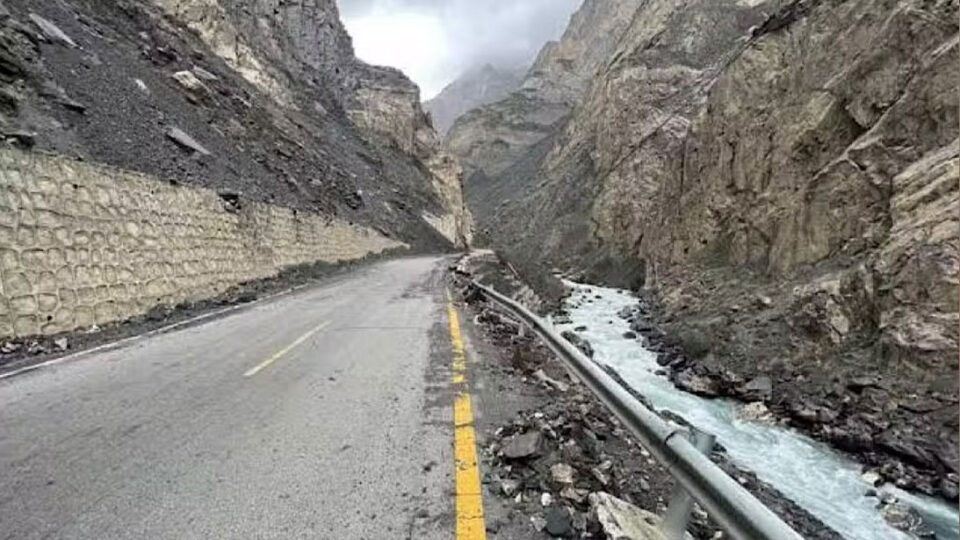River Erosion Damages Karakoram Highway in Upper Hunza, Disrupting Pakistan-China Link
A significant section of the Karakoram Highway (KKH) in the Morkhun area of Upper Hunza was severely damaged by river erosion on Friday, cutting off the crucial land connection between Pakistan and China, confirmed the Gilgit-Baltistan (G-B) government.
The damage followed a sharp rise in river levels caused by accelerated glacial melting linked to rising regional temperatures. This increase in water flow has led to localized flooding across parts of G-B, threatening infrastructure and local communities.
G-B government spokesperson Faizullah Faraq stated that the affected stretch of the KKH is currently impassable. Chief Minister Haji Gulbar Khan has ordered immediate restoration efforts, with emergency teams already deployed on site.
The Karakoram Highway, a vital trade and travel route connecting Pakistan and China via the Khunjerab Pass, remains a top priority for repair to restore cross-border movement.
In related news, rescue operations continue in Skardu after a boat capsized in the Zhouq Kachura area, with several tourists reported missing. Authorities suspect unusually high lake water levels, fueled by glacial runoff, contributed to the accident.
Faraq also emphasized that boating activities remain banned in affected zones under Section 144 of the Criminal Procedure Code, enabling authorities to limit gatherings and ensure public safety. Strict action will be taken against violators, including tour operators.
This event is part of a broader pattern of climate-related challenges in Gilgit-Baltistan. Since June, Pakistan has faced severe flooding from cloudbursts, glacial lake outburst floods (GLOFs), and heavy monsoon rains. Gilgit-Baltistan is among the hardest-hit due to its rugged terrain and vulnerability to climate impacts.
With the monsoon season ongoing and temperatures rising, officials urge residents and tourists to stay alert, follow safety guidelines, and prepare for possible further disruptions.

